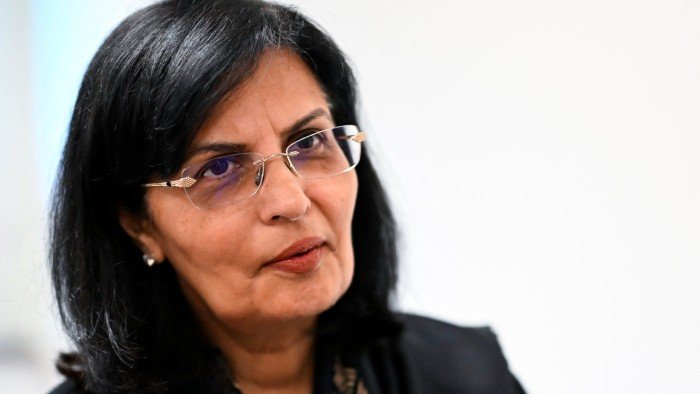Unlock the White House Watch newsletter for free
Your guide to what the 2024 US election means for Washington and the world
Gavi, the international vaccine alliance, is trying to convince President Donald Trump’s administration to maintain vital funding for the body by arguing that a donation would boost the US vaccine industry, as it seeks to raise $9bn by later this year.
Gavi chief executive Sania Nishtar said the organisation had recently held meetings with the administration, and with members of Congress, to argue that the US should continue to contribute 13 per cent of its funds, despite Trump’s efforts to cut foreign aid.
She said Gavi was trying to align with the administration’s three priorities of making the US “safer, stronger, and more prosperous”, including by stressing how investment in global health could stop the spread of diseases before they reached America’s shores.
The agency had a long history of working with the US, including during the first Trump administration, she said. “Normally when we talk about Gavi, we talk in human terms. You know, lives saved, deaths averted, disease averted. What does it mean for saving children’s lives?” she told the Financial Times.
“But perhaps they haven’t heard the commercial side of the story that well. So this time around, we made it a point to explain that . . . there are manufacturers [on] that side of the Atlantic from which we buy vaccines. ‘Here is the quantum. It’s a good return on investment’ . . . It was that kind of language that we also threw into our advocacy,” Nishtar added.
During their meetings with lawmakers in the capital, they had not encountered any overt anti-vaccine sentiment. Robert F Kennedy Jr, secretary of health and human services, has frequently questioned the safety and efficacy of vaccines.
She noted that it would be “very difficult” for any other donor to fill the gap that would be left if the US withdrew, even though they had fresh pledges from, among others, the EU, Canada and Indonesia — a new donor that had previously been a recipient of funds — ahead of the agency’s next “replenishment round” which culminates on June 25. “If there’s a shortfall the board will have to make some very tough trade-off decisions.”
Gavi’s current aspiration is to vaccinate 500mn children over the next five years, “which is twice as fast as what the trend has been in the past”. If the US contribution was taken out of the equation, “it means we will not be able to vaccinate 75mn children. That translates into about 1.3mn deaths. That’s what the stakes are, which is why we continue to reach out to the US administration,” she added.
Among areas that might be vulnerable, she suggested, were “a whole new range of vaccines that are very exciting, that have opened new possibilities of cure and new possibilities of reducing morbidity and mortality. So I think we wouldn’t be in a good place if we had to make those trade-offs.”
She suggested it was still too soon to discern the impact of other cuts, for example to aid programmes, being made by the Trump administration. “There’s significant on-ground disruption, especially in Africa . . . [but] the full scale of what is unfolding is still unclear. Where is the supply chain disrupted? Where [is] a warehouse rent not being paid? . . . Where are you unable to buy the medicines, the other commodities? And the situation varies from country by country, setting by setting,” she added.
